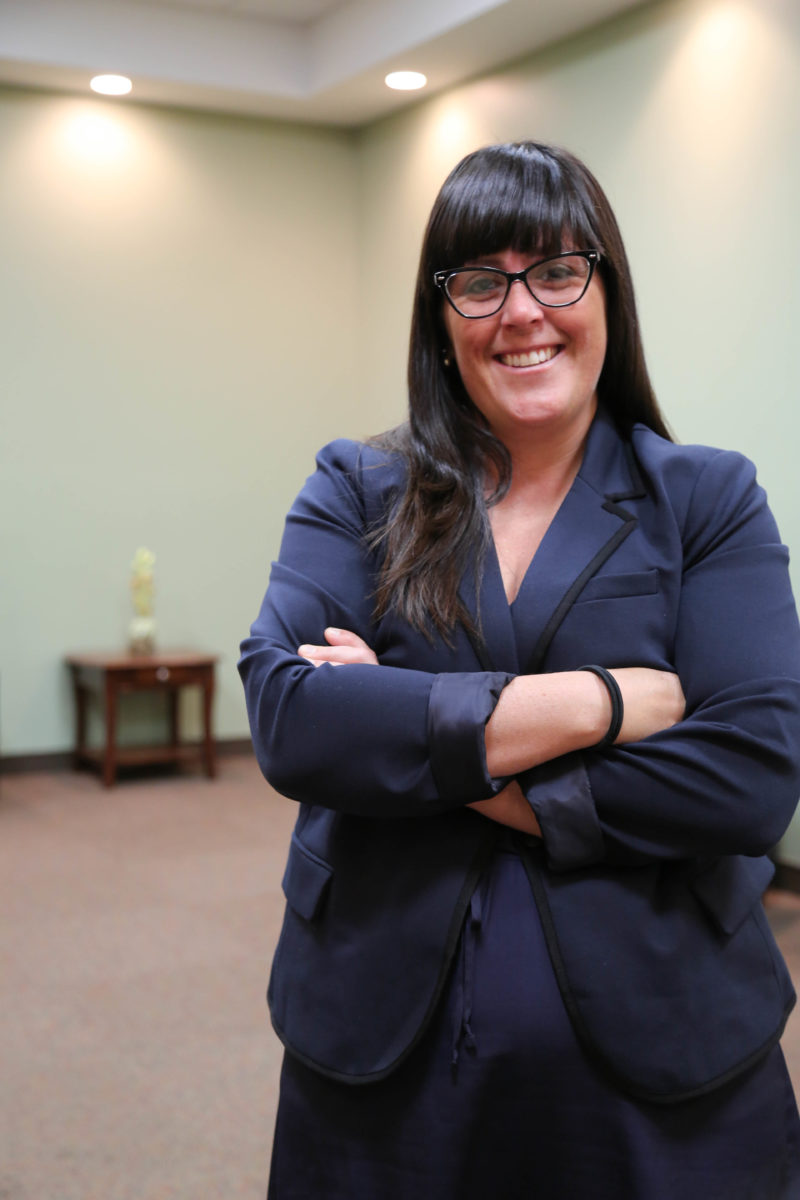
Meghan MacAfee was voted by her peers as Coach of the Year at the Atlantic Collegiate Athletic Association women’s rugby banquet.
“I was really happy to get (the award) because it was voted by the other coaches in our league which was really, really, kind and generous of them,” MacAfee said. “We hear a lot from the teams we play that we play hard rugby, they always know it’s going to be a good game… When it comes down to it, from the start of the game, I’m on the sidelines. It’s the girls who really made that impression.”
MacAfee, who has been head coach of the St. Thomas University’s women’s rugby team for the last two years, successfully lead the women Tommies to an ACAA silver-medal finish both years. Despite the loss, the team went to this year’s championship game in first place, being undefeated before losing to the UNB Varsity Reds.
“The girls (were) super committed, they put time in every single day to the team,” she said. “Everyone knows you come to practice, everyone knows you work hard, and we had a lot of fun doing it. Everyone knows that the hard work you put in, in that tight amount of time, that team culture – it all comes in to being successful on the field, I think.”
Meghan MacAfee started playing rugby when she was seven years old. Her father had played in university and went on to coach. While growing up in Fredericton, she watched her older brother play.
“On Saturday mornings, my other friends did other things, and went to rugby,” she said.
MacAfee said she doesn’t know if her start in rugby was voluntary or not, but she stuck with it. She started in mini-rugby, and played on a co-ed team in middle school.
“I played throughout high school too,” she said. “I played on junior and provincial teams, and senior provincial teams throughout my whole university career at (the University of New Brunswick). I still play senior rugby – the rugby community is very strong and really fun to be a part of.”
Following in her father’s footsteps as a coach wasn’t something MacAfee always planned to do – it just kind of happened.
“I started as an assistant coach for STU,” she said. “A friend of mine was a head coach, and I had just moved back from Alberta after living there for a year. I had been playing rugby in Alberta and it kind of re-sparked my love for the sport.”
MacAfee offered her help to the team and ended up assisting for two years before taking on the position of head coach, even though she didn’t have a lot of coaching experience.
Bailey Andrews, Tommies team member who was voted Rookie of the Year said what she likes about MacAfee as a coach is she is always positive, even when things are going wrong.
“To be successful, you need to have a balance of seriousness and fun,” Andrews said. “Meghan knows how to do that.”
Andrews said MacAfee created a warm and welcoming environment which made it easy for her to transition into her first year of university rugby. She was given different opportunities that helped push her out of her comfort zone, and even if something didn’t work out, Andrews said MacAfee would still be supportive.
“Meghan always said, ‘It’s alright if something doesn’t work out – just keep trying, maybe it’ll work,’” she said. “I think that was the biggest thing (for me) this year.”
MacAfee said the thing she likes about STU is that it’s a very tight-knit community.
“(STU’s program) was appealing in that the girls really bonded – it creates a really good opportunity to make a team that can gel, and can develop its own culture.”
As a coach, MacAfee said she wants to be able to give to her players what her experience as a rugby player gave to her.
“My university rugby career was a time when I changed a lot, I learned a lot, I’ve developed friendships that have lasted my whole life,” she said. “I want to create the opportunity for that, for them. I think that you learn a lot through playing sports – you challenge yourself, you learn how to push yourself.”
MacAfee said aside from the technical stuff, she and her fellow coaches have tried to focus on allowing women to leave university with more than just an education.
“I want them to be able to leave with good life skills, great relationships, understand how to deal with conflict and themselves in stressful situations,” she said.
“I feel like we do a really good job of creating a culture and a team that the girls want to be a part of, and that when they leave university, they’ve grown as people and athletes.”
